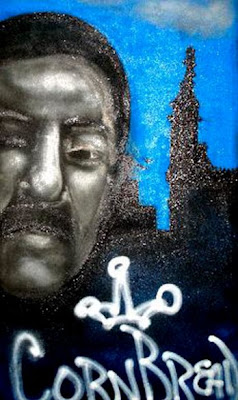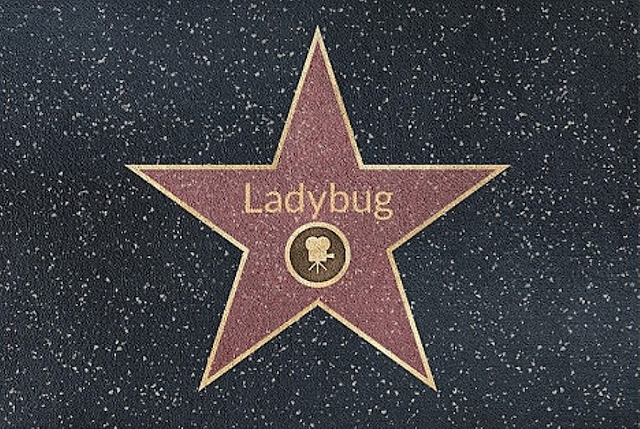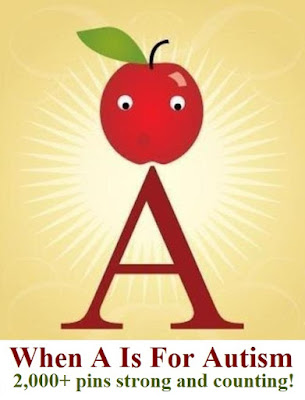 Introduction (Shout Out): If you are a native Philadelphian, you know that for many years, graffiti was viewed as a long-standing problem or art form in this city, depending on your personal view of it. And, if you grew up here during the 1970s, you know that there was one tag name that could be found just about anywhere and everywhere you looked... "Cornbread". There was a time when no place in this city was too high, too low, or otherwise off limits to bearing that name. As a teenager, I remember seeing it on the "Welcome To Philadelphia" sign out by the airport, numerous office buildings in Center City, and the Benjamin Franklin bridge, just to name a few. I remember my father asking on many occasions whenever he saw it in some out-of-the-way place like that bridge... "How in the world did he get way up there?"
Introduction (Shout Out): If you are a native Philadelphian, you know that for many years, graffiti was viewed as a long-standing problem or art form in this city, depending on your personal view of it. And, if you grew up here during the 1970s, you know that there was one tag name that could be found just about anywhere and everywhere you looked... "Cornbread". There was a time when no place in this city was too high, too low, or otherwise off limits to bearing that name. As a teenager, I remember seeing it on the "Welcome To Philadelphia" sign out by the airport, numerous office buildings in Center City, and the Benjamin Franklin bridge, just to name a few. I remember my father asking on many occasions whenever he saw it in some out-of-the-way place like that bridge... "How in the world did he get way up there?"
This collection of previously published articles, which were written throughout the last decade, tell the story of the young boy from Philly behind that infamous tag name and it has also been determined that he is the true "Godfather of Graffiti". He is still very much alive and it might surprise you to know that "Cornbread" is known around the world to those who view graffiti as a treasured and valued form of art expression. His name is also hanging in a museum in Paris, France and he didn't have to sneak in after hours when no one was looking to put it there. The once young boy, now grown man, behind that name was actually asked for his signature tag so it could be used for a graffiti art exhibition and he was paid for it.
Some people have judged him harshly for the "mark" he left upon Philadelphia; others idolize him for that legacy and the art form he created, which later became a part of inner city/urban culture across the nation. I should also say here that this post is not intended to promote "vandalism" in the form of graffiti. Personally, I prefer what graffiti evolved into via the beautiful murals that Philadelphia is known for today. But, there is a "reason and a season" for everything and simply put, those murals would not exist without the graffiti that came before them. So, the story of the person behind the tag name "Cornbread" is at least worth knowing... and for starters, his real name is Darryl A. McCray.
 When "Cornbread" Was King
When "Cornbread" Was King
By Yvonne Latty, Philadelphia Daily News, April 25, 2000
In Philadelphia, graffiti as we know it began with a skinny kid who called himself "Cornbread." At his peak in the 1970s, his simple black tag was spray-painted everywhere. On a 747 jet. On a skyscraper. On an elephant in the zoo. He spent entire nights in SEPTA depots, writing his name inside and outside the trains and buses. "He's the original king of the walls," said Stephen Powers, the author of "The Art of Getting Over: Graffiti at the Millennium." Hollywood hotshots wanted to make a movie about his life. Graffiti would make him a star. It never happened.
Instead, Darryl A. "Cornbread" McCray, now 46 years old, became a drug addict. Recently, he spent two months in jail on an attempted-rape charge that was later dropped. He was released on March 2, 2000. During an interview while he was still in custody, McCray strutted into the small interview room at Curran-Fromhold Correctional Facility oozing charisma. His large dark eyes were afire. There was a huge smile on his face. "Can you tell the guys in my cellblock, C-21, that it's really me - that I'm Cornbread," he said with a laugh. Then, he launched into his life story.
McCray said he got the nickname at reform school because he always talked about the cake-like cornbread his grandmother used to make. At age 10, he was sent there for two years after setting his school on fire. "The gym teacher hit me in class and I peed on myself," McCray said. "I got so mad I set the gym on fire. I was the black sheep of my family. I was always getting into trouble."
When he was released at 12 years old, the North Philadelphia youth met his first love and decided to use graffiti to woo her. "I saw this girl, she was so pretty," he recalled. "I wanted to talk to her, but I didn't know how. The only way I could think of getting her attention was to write 'Cornbread loves Cynthia' everywhere. She was like, who is this guy?" And then, one day she saw it on my notebook and we started going out." The romance was short-lived, because Cynthia's parents didn't like him.
"But by then, everyone was talking about me," McCray said, his face lighting up. "My name was all over North Philly. I began to write it everywhere. When I was growing up in North Philly, it was full of gangs and the only way you could get a rep was to kill somebody. I didn't want to do that, but writing my name everywhere gave me a rep and that's what it was all about for me." Graffiti became his life. He'd spend all night spray-painting in SEPTA depots and tunnels. He had his tag monogrammed on his clothes. And he started putting a crown on the tag to show he was "king of the city."
When others began spray-painting city walls, trains, and buses, McCray got more daring. One night, he took the construction elevator to the 49th floor of a building being erected at 15th and Market streets and wrote his name on the steel. When a rumor started that he had died, McCray climbed over a fence at the Philadelphia Zoo and wrote "Cornbread Lives" on both sides of an elephant's rough hide. He got nine months of reform school for that offense. When the Jackson 5 came to town, he joined throngs of fans to see them off at the airport, then snuck out to the plane and spray-painted the side of their 747 jet. "I didn't get arrested," McCray recalled. "Instead, they wanted to do a movie on my life."
The movie, "Cornbread, Earl, and Me", didn't turn out the way McCray planned. "With all the stuff going on, contracts and everything, this neighborhood activist said I should get a lawyer," he said. "The lawyer told me not to sign anything until he saw the contracts. The movie folks said, our lawyer is your lawyer. We made plans to meet again and they never showed up. I never heard from them again. Five years later in 1975, the movie came out. It had the same name, but it was set in Chicago and was about basketball." That was the beginning of tough times for McCray. "I went to California," he said. "I tried to sue them. But there was nothing I could do. Hollywood people said maybe I could be an actor, but I should go to New York and study. I went there for five years and studied and all I got was nothing."
Moving back to Philadelphia, he got a job with the city's Anti-Graffiti Network. They were recruiting prominent former vandals as field representatives in a campaign to fight graffiti. But McCray and then-executive director Tim Spencer butted heads, and he was fired. At that point, he was already dabbling with drugs. "When I lost the job, I got heavy into drugs, heroin and cocaine. I was really messed up for a long time. During that time, I was in and out of jail so much the cats never missed me." Credit card scams, theft, counterfeit money, writing bad checks - McCray did them all during his stint as a small-time crook. He even went on a cross-country crime spree and wound up arrested in Arkansas. The longest he spent in jail was eight months, he said.
In 1990, he got clean and became a free-lance photographer. He said he travels to events like block parties and takes Polaroids for $ 10.00 a photo. He also made lots of babies - 10 with five different women. His children range in age from 20 months to 26 years, and he's the grandfather of five. He lives in a dark basement apartment on Walnut Street near 49th with his girlfriend and two of his kids.
McCray, who has not done graffiti in 25 years, is full of regrets. Having lost the chance to cash in on his fleeting fame in the 1970s, he hopes to find a writer who will pay to write Cornbread's life story. "I want to get paid," he said. "Rubin 'Hurricane' Carter was compensated - that's all I want. It makes me feel good when I see someone use graffiti as a vehicle to get out of poverty, but I've gotten nowhere. I love my children, but all I've gotten out of life was a bunch of nothing."
 Film Profiles Famed Philadelphia Graffiti Artist "Cornbread"
By Julie Stoiber, Philadelphia Inquirer, September 3, 2006
Film Profiles Famed Philadelphia Graffiti Artist "Cornbread"
By Julie Stoiber, Philadelphia Inquirer, September 3, 2006
Thirty years after his brush with Hollywood, when fame felt so close he could taste it, Darryl A. "Cornbread" McCray still boils with anguish as he tells about the movie of his life that never got made. "That would have been my ticket out of the ghetto life," he said. When he was ditched by the studio – undone by his own audacity – "I sat there and cried," he said. "I was robbed." But with his penchant for redemption, the now 52 year old McCray, an in-and-out father of 10 who has worked to reconcile with his children, the self-proclaimed king of graffiti who scrubbed clean the very Philadelphia walls he so notoriously defaced, may yet see his story on the screen.
In a documentary scheduled to be released this fall, filmmaker Sean McKnight, 37 years old, of Ridley Park, will tell the tale of a troubled middle child from a God-fearing North Philadelphia family who got the attention he craved on the streets. McCray accomplished it by spraying his tag, "Cornbread", with a swoosh at the end and a crown over the B – along every bus, trolley, and subway route in the city and, in one of his most daring feats, on the flank of an elephant at the zoo.
The film is called
"Cry of the City (Part I): The Legend of Cornbread". "In his day, he was notorious," McKnight said. "His fame is not exaggerated." And, not just in Philadelphia. The authors of a new book on the graffiti movement identify Cornbread as "the first 'bomber,' the earliest example of a person going out on the streets with no other purpose than to write his name on everything."
McKnight, whose one-man Cinema Alliance has a single feature-length film to its credit, began shooting the documentary in the fall, interviewing more than 40 people, including graffiti writers, a black historian, a news anchor, and former Mayor W. Wilson Goode, Sr. "I was pleased to participate because Cornbread became an inspiration for many of the young people about why they should
not write on walls," said Goode, now director of Amachi, a national mentoring program for children of prisoners. “The number-one problem in the city when I ran for mayor was graffiti."
The politician and the vandal met in 1984. McCray swaggered up to Goode at City Hall, a scrapbook of news clips under his arm, and told the mayor that his anti-graffiti campaign had no chance – unless he gave Cornbread a job. Goode not only hired him, McCray said, he showed him off at a news conference. "If you mention his name, people will say, 'Cornbread?!' Then, they’ll just start talking about him," McKnight said.
One day in a North Philadelphia high-rise, McKnight said, he was making small talk with two women as he rode the elevator to McCray’s apartment for a shoot. They asked about his equipment and when he explained what he was doing, they freaked out. "Cornbread?! Cornbread lives in this building?!" He’s a celebrity and they knew exactly who he was."
But, for all his admirers – and there are many, McKnight said – McCray is also reviled for the untold destruction he visited on his hometown: He once tagged the top floor of a skyscraper under construction near City Hall. He stood in different depots different nights and hit every bus, trolley and train in sight. "The documentary presents both sides of the coin," McKnight said. "We talk about the damage." At the outset, McKnight said, he told McCray the ground rules: "It’s the good, the bad, and the ugly. He’s done drugs. He’s been arrested some outrageous amount of times,” McKnight said. "I’ve asked him questions about his life like, 'You’re not being a great father if you’re strung out on heroin, are you?' He’s got a dark side and he’s willing to explore it."
McCray, who described himself as "buck wild" as a teenager, ended up in reform school. There, he missed grandma’s cornbread so much he badgered the head cook to make some for him. Fed up one day, the man grabbed McCray and warned his counselor, "Keep this Cornbread out of my kitchen." Soon, McCray was writing his new nickname on the jailhouse walls. When he got out, he fell for a girl named Cynthia. McKnight tracked her down for the documentary and wrote "Cornbread Loves Cynthia" on the chalkboards in her classrooms and on the route she took from school. After her parents moved her away, he went back to "Cornbread" in black or silver.
What really got the city’s notice was a flurry of stunts McCray staged in the early 1970s after local media publicized his death, mistaking him for a young man nicknamed "Corn" who was murdered in West Philadelphia. "I thought, all I got to do is start doing bizarre stuff and my reputation will rise again," he said. That’s when he hit the zoo and the skyscraper, and paid a friend to stage a fake crime so he could tag the police cars and wagons that responded. "I was no stranger to danger," he said.
What caught Hollywood’s eye was the Jackson 5 jet. McCray planted himself among a crowd of autograph seekers who mobbed the band when it deplaned at Philadelphia International Airport. Amid the chaos, McCray claims, he dashed up and sprayed the plane and his name was still there when the jet returned to California. It wasn’t long before a studio representative tracked him down and offered to make a movie about his life, McCray said. When he demanded his own lawyer, the studio balked, he said.
He lost his oldest son to a street killing a decade ago. Desperate to find the shooters, he put on rags and pushed a shopping cart around a drug neighborhood, a homeless personal that allowed him to pick up information about the men responsible. Police made an arrest. If they had not, I was going to hold court in the street," McCray said.
With his rich voice, expressive face and preppy ball cap, McCray acknowledges that all his bravado – his middle initial stands for “Alexander the Great”; every one of his eight grandchildren looks just like him – didn’t really get him where he wanted to go. "I wrote on walls because that was my escape from ghetto life," he said. He has had personal satisfaction, working for the Anti-Graffiti Network, helping delinquents attain high school equivalency degrees, counseling addicts. But he has yet to achieve the kind of bust-out exposure he envisioned. He lives in a so-so neighborhood, makes his living selling cut-rate DVDs and CDs. His drug addiction, he said, cost him a shot at a deal to market a cornbread mix.
With the documentary comes renewed hope. Raphael Paris, a local funk and blues musician who idolized Cornbread as a kid, is doing the narration and the soundtrack. His band: "Cornbread". His top song: "Cornbread." McCray said, "I pray to God, let this be a success. This is the beginning of a new start."
 Former Philadelphia Graffiti Artist Now Arts Advocate
By Erin Negley, Reading Eagle, February 6, 2008
Former Philadelphia Graffiti Artist Now Arts Advocate
By Erin Negley, Reading Eagle, February 6, 2008
Cornbread’s graffiti career may have been short-lived in the 1970s, but it was prolific. The godfather of graffiti managed to spray-paint his crowned signature all over Philadelphia, tag the Jackson 5’s plane, and sign both sides of an elephant at the Philadelphia Zoo.
Former graffiti artist Darryl "Cornbread" McCray speaks to an audience at Albright College's Center for the Arts. McCray now works with the Philadelphia Mural Arts Program. On Tuesday, Darryl “Cornbread” McCray spoke about his “art” to a small audience at Albright and showed a documentary about himself. After watching
“Cry of the City (Part I): The Legend of Cornbread”, some fans stayed for his famous autographs.
McCray, now 54 years old, started writing his name everywhere in a reform school in the mid-1960s. Gangs did the same, but McCray wasn’t in one. "I wanted a reputation, but I didn’t want blood on my hands for it," he said. His signature, Cornbread with a crown over the "B", came from a nickname he got after pleading with a reform school cook to make cornbread.
When he returned to his Philadelphia school, he wooed a classmate with messages painted along her route to school: “Cornbread loves Cynthia.” Cynthia changed schools and Cornbread’s reputation grew as he spread his name throughout the city. His fame was such that the media once mistakenly reported he had died. “Cornbread Lives,” McCray replied, on the side of an elephant. In 1971, his first son was born and he quit doing graffiti. "I had a great sense of responsibility to raise my child and writing on walls was kind of childish to me," he said. McCray left Philadelphia for a time to pursue acting and a film about his life.
When he returned in the early 1980s, he was appalled. Graffiti had become vandalism, not art. The city was a mess, he said. As a member of former Mayor Wilson Goode’s Anti-Graffiti Network, McCray helped lead a cleanup. His advice to would-be taggers now would hearten even the most anti-graffiti municipal official: "If you’ve got the talent to do graffiti, you can get paid for it. But don’t go out and vandalize."
Today, McCray works as a mentor and speaks to children about art with the Philadelphia Mural Arts Program. His appearance at Albright was arranged by Jon E. Bekken, chairman of the college’s communications department. "I’m interested in a wide range of communications, in particular in ways in which people who don’t have access to media outlets try to get a voice," Bekken said.





































+of+JBHS+30th+Reunion.jpg)



















































































 🕊 Rest in Paradise Dad
🕊 Rest in Paradise Dad 🕊 Rest in Paradise Mom
🕊 Rest in Paradise Mom

















